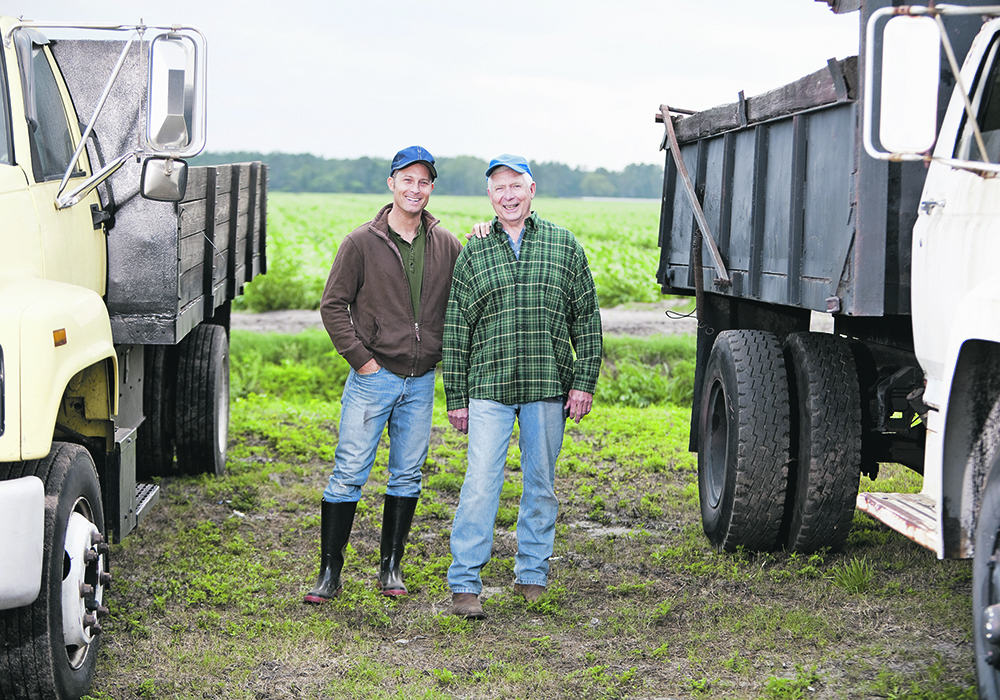Parliament passed legislation earlier this year that will make it easier for producers to transfer farms to their children
A bill to smooth the transition and reduce taxes for the intergenerational transfer of farms received final approval in June, but farmers, farm leaders and tax accountants are still unsure what the final rules will look like.
Bill C-208, introduced by Conservative MP Larry Maguire, was designed to allow family members the same tax treatment as those who were not related to the family farm.
Mary Robinson, president of the Canadian Federation of Agriculture, said the implementation of the bill is significant.
“Prior to Bill C-208, if I was a retiring farmer and wanted to sell my farm to fund my retirement, if I was going to sell it to my daughter or to my son, I was going to pay significantly more tax than if I would sell it to you. It puts producers between a rock and a hard place. Does it make sense to sell at a huge loss to a family member, or am I forced to go outside my family in order to fund my retirement?” said Robinson of Prince Edward Island.
Read Also

New coal mine proposal met with old concerns
A smaller version of the previously rejected Grassy Mountain coal mine project in Crowsnest Pass is back on the table, and the Livingstone Landowners Group continues to voice concerns about the environmental risks.
The national farm group believes the implementation of the bill is important to farmers, and candidates from all federal parties were asked about their support for it during the agriculture debate in the recent federal election.
“During CFA’s ag leaders debate, we did ask the question of each of the candidates if they supported the intent behind C-208 to ensure farm families aren’t paying more to transfer farms to family members than unrelated third parties and they were all in support of it, including (Liberal agriculture minister) madam (Marie-Claude) Bibeau,” said Robinson.
“It is on our radar because it was one of our rapid fire questions in our debate. We wanted to make sure we had everyone on the record that they support it. Until business starts flowing and C-208 is up and running and in motion, never say never.”
Dustin Mansfield, tax partner with BDO in the Manitoba office, said the intent of the legislation is to “level the playing field” between a sale to an arm’s length party and to someone within the seller’s family.
“Bill C-208 was intended to allow the sale from the parent to the child’s corporation and allow the child to use a corporation to buy out Mom and Dad, and Mom and Dad use the capital gains exemption on the sale,” said Mansfield of Boissevain.
But shortly after the bill received royal assent, the federal department of finance released a statement saying it intended to bring forward amendments to the Income Tax Act to safeguard against any unintended tax avoidance created by loopholes the bill may have created, while honouring the spirit of the bill.
“One loophole that Bill C-208 may inadvertently permit is the opportunity for surplus stripping in which dividends are converted to capital gains to take advantage of the lower tax rate, without any genuine transfer of the business actually taking place, thereby compromising the integrity of the tax system,” federal finance minister Chrystia Freeland said in a news release.
Mansfield said he is not sure what the final rules will look like, but the intent of the bill of smoothing the farm transition between families is clear.
“It is pretty clear what the intent of the legislation is. When you’ve got a genuine intergenerational transfer, which is what the rules are there to advance, you will have a few situations where the expectation is the rules will continue to stay in place.”
Mansfield said the bill will make changes to two specific provisions. The first provision made adjustments for a family to pass down the farm with multiple siblings. The law did not characterize siblings as related. The bill now allows the farming assets to be split more equitably between siblings.
The second change is what caught the attention of the finance department. Previously, parents could sell a business to an unrelated corporation and claim the capital gains exemption, but could not claim the same capital gains if they sold to a family member.
With the increased use of corporations in family farms, changes were needed to allow an equitable sale.
“It is important now because we will see a lot of transfers of family farm corporations. This could be a way for Mom and Dad to access fair exemption on the sale, but I think it is even more so in the future,” Mansfield said.
“In a lot of situations now land is all in a corporation. In previous generations we could often get capital gains exemptions through other routes because a lot of the farmland was held personally. Because it is worth so much money now a lot of it ends up in the corporation in order to pay down the debt. It will be important in the next generation.”
The federal government said it will propose new rules by Nov. 1.
“Those involved in passing and moving the bill along definitely wanted to see and understand the intent of the bill and what it wanted to accomplish. That is why I am optimistic the rules will still exist, it’s just the additional provisions to prevent potential abuse,” he said.
Robinson said the changes to the bill are significant to anyone retiring or selling their farm.
“For anyone looking at a tax bill significant to them, they want to pay attention to this and figure out if they can postpone a transfer until we are in more certain times on this. What is your risk tolerance on your exposure to this? There were some muddy waters around it,” she said.
“We continue to push for C-208 because it is legislation. (Federal finance chair) Wayne Easter made some strong statements that Parliament is supreme and that is what this is. Bill C-208 has received royal assent, therefore it is law.
“Ultimately, if you would ask me if I had full confidence in selling my farm to a family member and have Bill C-208 apply, I would certainly be sure I had all my ducks in a row and getting a legal, as well as an accountant’s opinion on it. It is no small potatoes.”

















